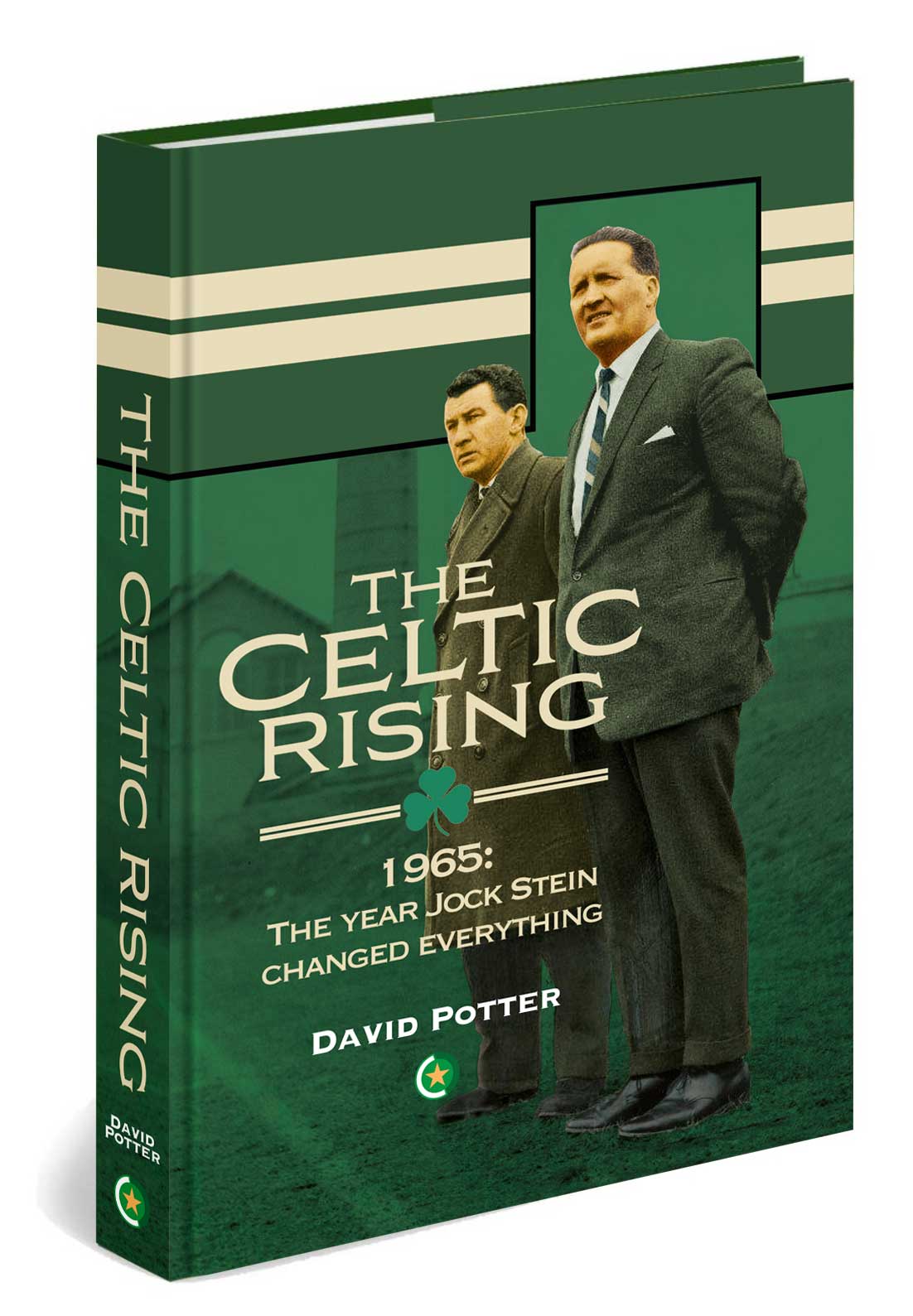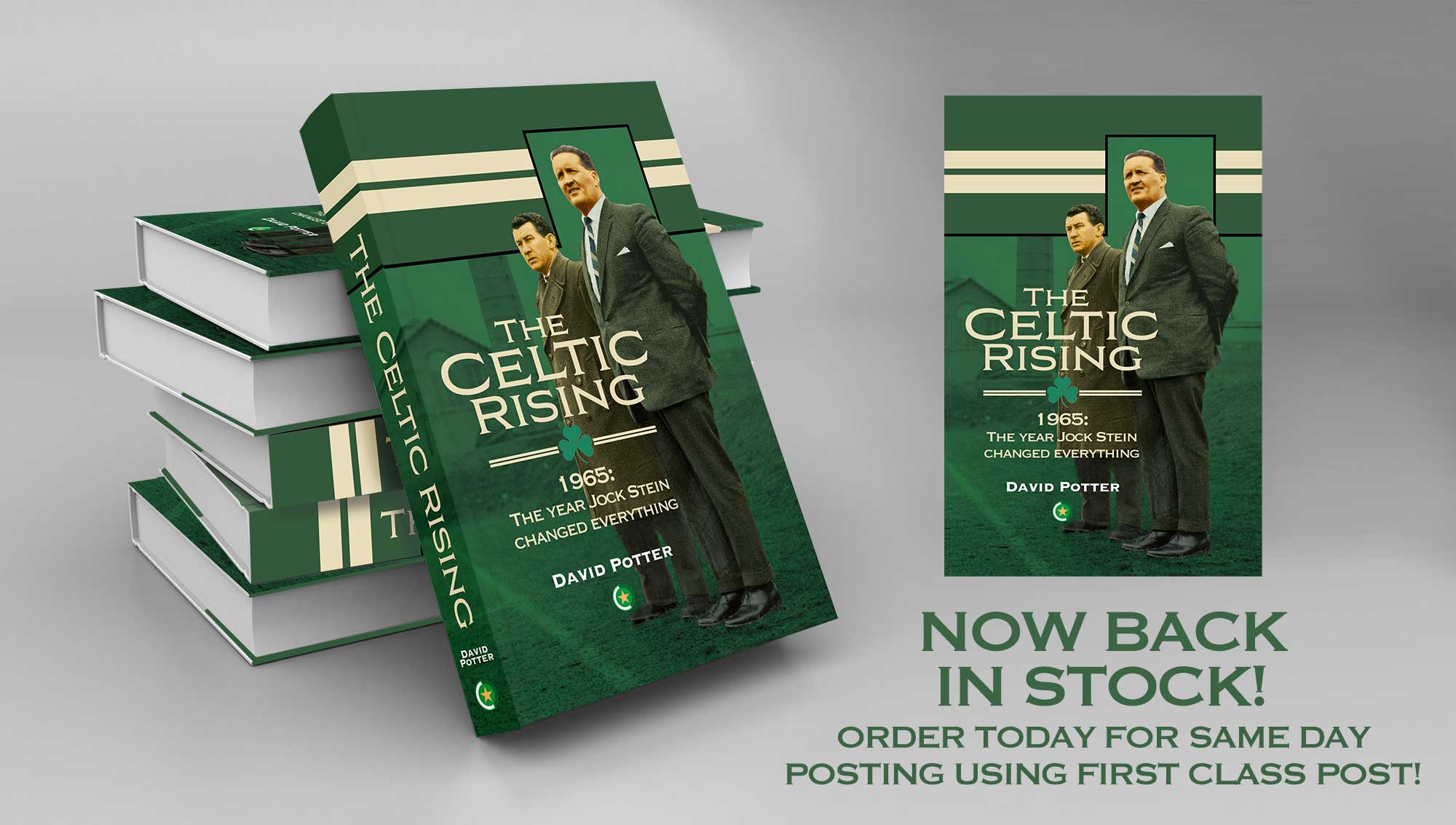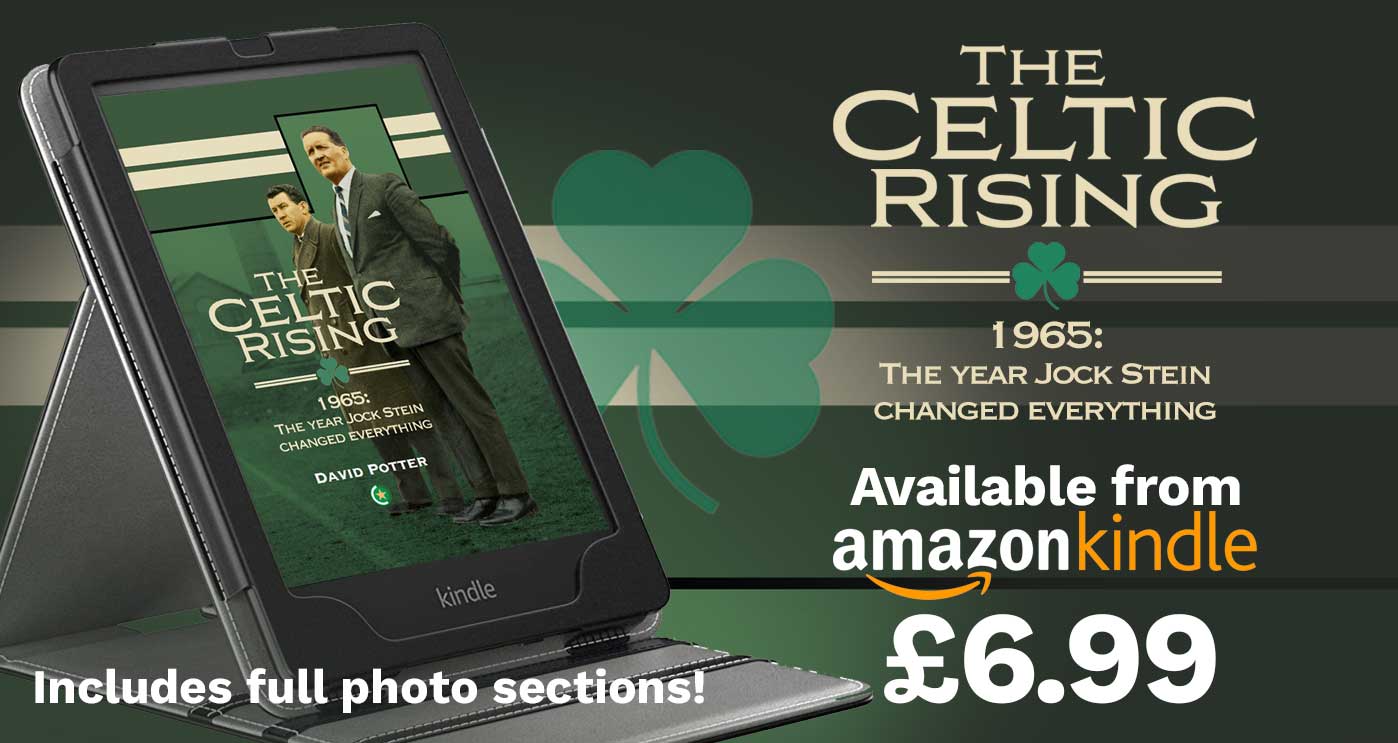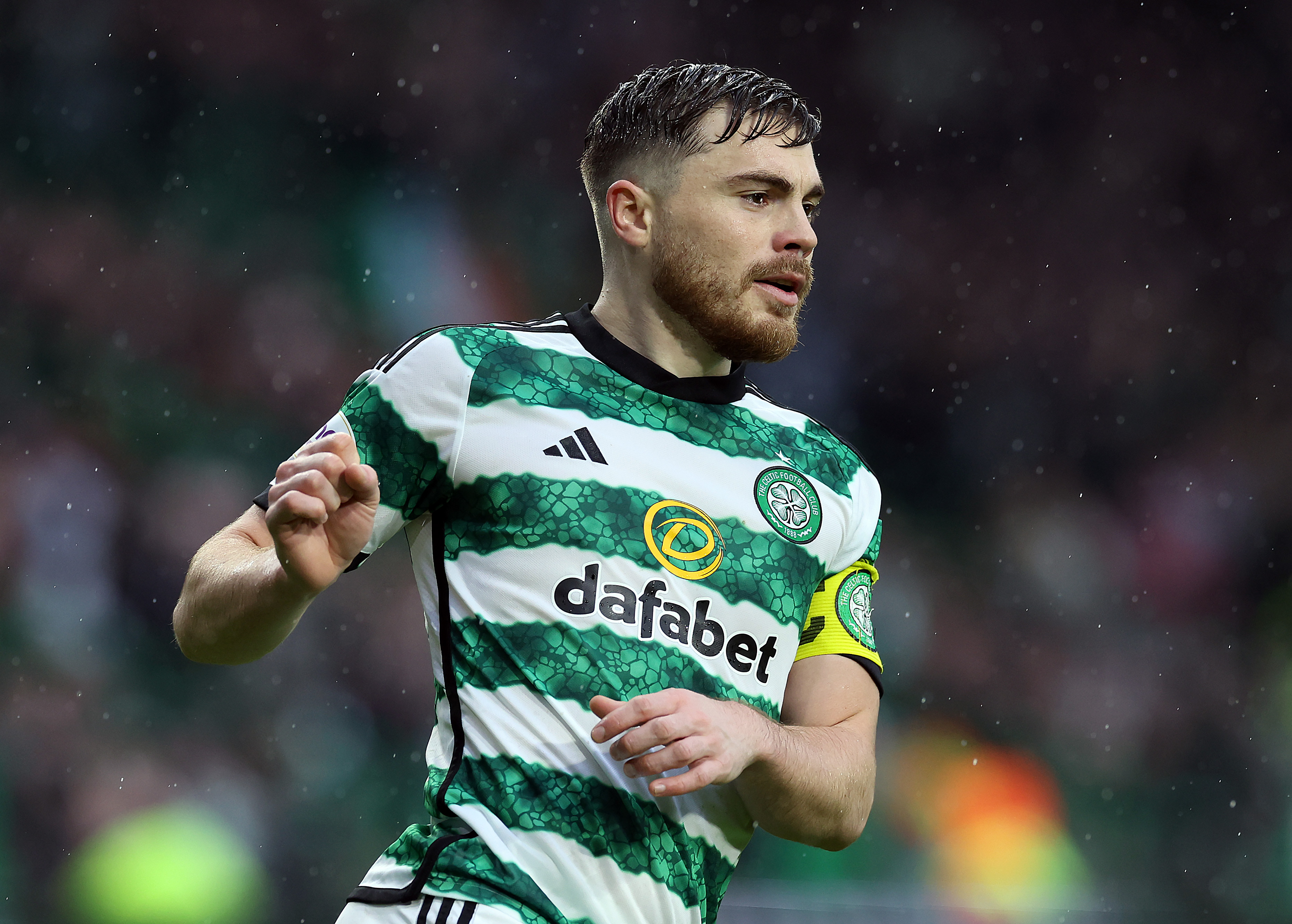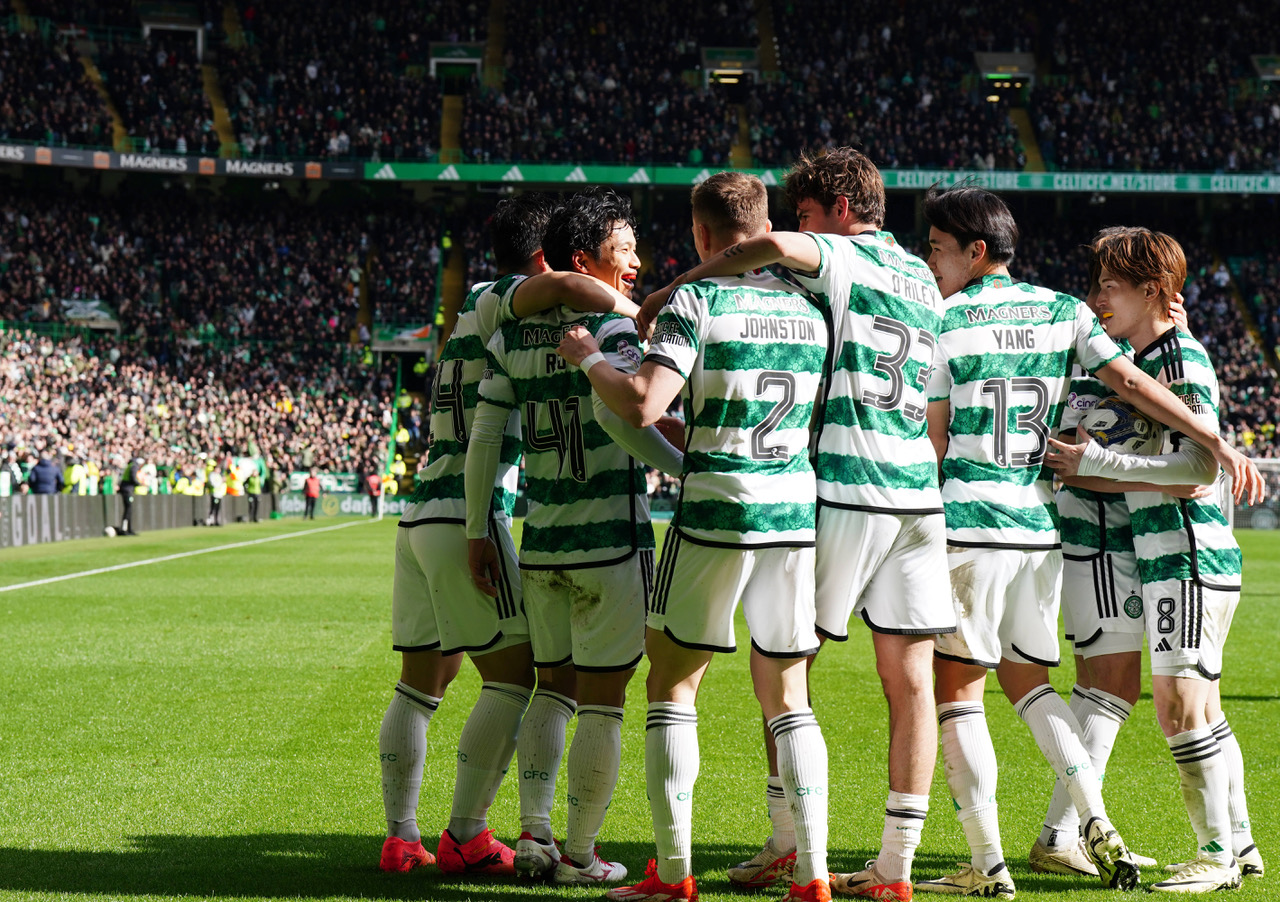The Tommy Callaghan Story – Part 5: Defeat in Europe but domestic glory still beckons for the Pars…
Dunfermline’s stay at the top of the First Division lasted just 24 hours, Hearts coming from behind at Cappielow to beat Morton 3-2 and resume their place at the summit, two points clear of the Pars albeit having played two games more.
Hibernian and Kilmarnock also won their home fixtures against Motherwell and Dundee United respectively to join the Fifers on 37 points. The top six was made up by Rangers and Celtic, the Ibrox club still with an outside chance of retaining their title following a 3-0 win at Shawfield due to their games in hand but the story of the night was at Broomfield.
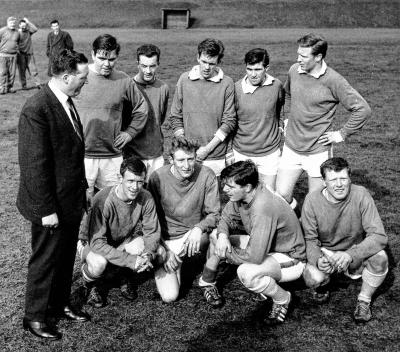
New Celtic manager Jock Stein had only met his players 24 hours earlier, but they hammered another nail in the coffin of relegation-haunted Airdrieonians with a stunning 6-0 win which featured five goals from the catalyst on the pitch – recent signing Bertie Auld – and another from John Hughes. This was a seventh successive victory for the Celts which had seen them score 28 goals for the loss of just three since the end of January. The Celtic Rising was well and truly underway it would appear.
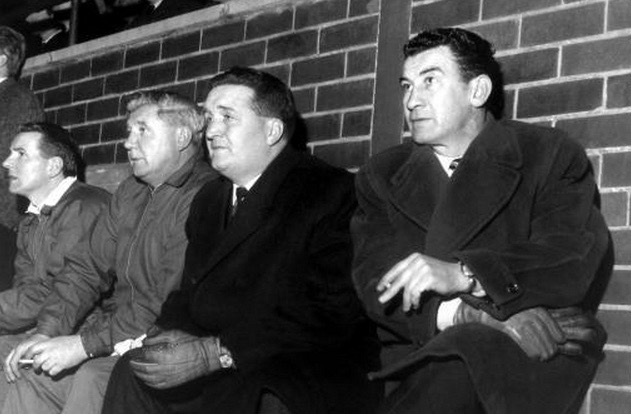
The other big news at that time was a controversial plan proposed by the Scottish League to introduce a new set-up for the 1965/66 campaign. That would involve three Divisions of 14, 12 and 12, with most observers agreeing change was required, despite the thrilling title race going on currently which meant that all top six clubs could still conceivably win the title.
The controversy arose from the basis on which clubs would be allocated to those Divisions, as rather than merit it would be based on attendances over the past three seasons. The clear losers from that proposal would be two Glasgow sides, Clyde and Queen’s Park. The Bully Wee were currently sitting just below Celtic in seventh place but would be assigned to the Second Division due to their low attendances over that period. And the Spiders were second to runaway Second Division leaders Stirling Albion and in pole position for a return to the top-flight, however, the proposal would relegate them to the third tier! Only in Scottish football.
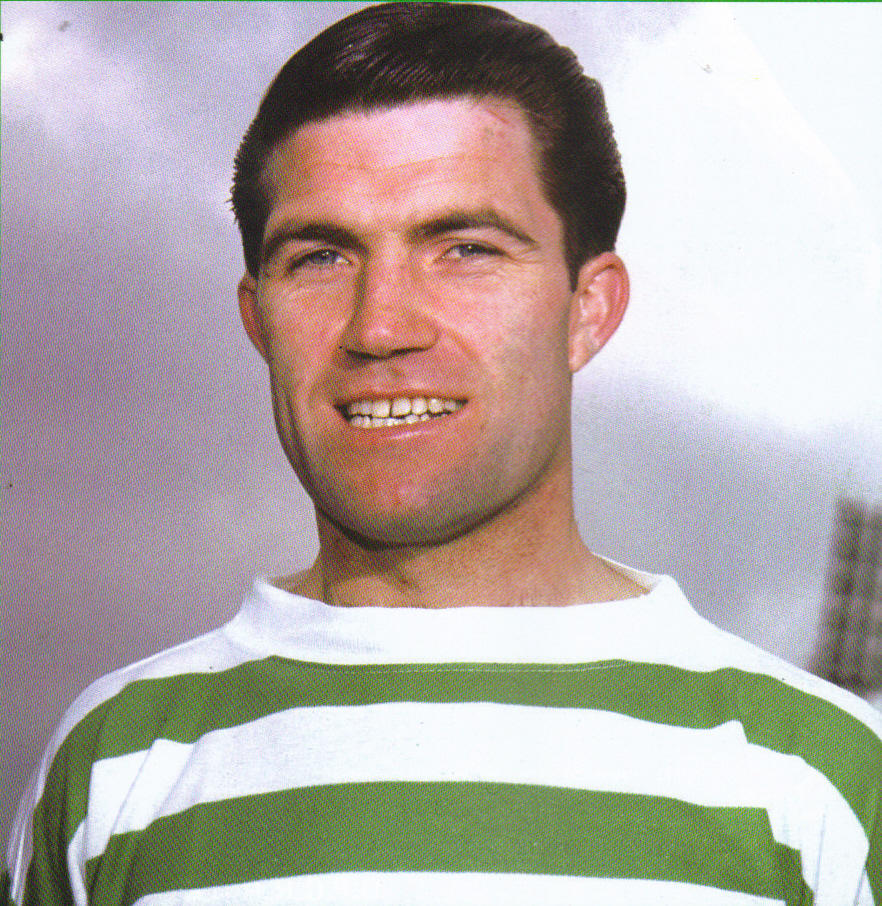
There were mixed fortunes for that top six on Saturday, 13 March 1965. Dundee had recently enjoyed significant successes on the road against two main title challengers, winning 4-1 at Rugby Park then 7-1 at Tynecastle. Three times the Dark Blues led at East End Park, albeit to their credit Dunfermline responded on each occasion to secure a 3-3 draw and a vital point thanks to a late equaliser from Alex Smith.
That would still see them slip further behind at the top, following victories for Hearts over Falkirk and Kilmarnock at Motherwell, Willie Waddell’s Killie now moving into second place. Hibernian also dropped a point at Paisley, whilst both main Glasgow clubs suffered defeats. Celtic’s excellent run ended in a 1-0 loss to St Johnstone in Jock Stein’s first home game, midweek hero Bertie Auld’s last-gasp penalty miss effectively ending any faint glimmer of hope for a first Parkhead title in 11 years, whilst new Aberdeen boss Eddie Turnbull guided his side to a 2-0 win over Rangers at Pittodrie, thus severely denting the chances of the flag flying over Ibrox again that summer.

There was no let-up for the Pars as they boarded a flight to Bilbao for their Inter-Cities Fairs Cup third-round play-off against Athletic. Alex Smith’s header at East End Park had squared the tie at 1-1 after 180 minutes of football, with most observers feeling the Scots had done enough to win over the two legs. Smith was again on target with a header, this time early in the second half from Tommy Callaghan’s cross to make it 1-1 on the night after a hugely contentious penalty award had given the Basques a first-half lead. The same Swiss referee Anton Bucheli had given Stuttgart an equally dubious spot-kick in the previous round.

With only four minutes remaining, Athletic Bilbao inside-left Fidel Uriarte struck a fabulous winner from fully 30 yards to send the 30,000 crowd into raptures and his team into the quarter-final. There they would meet Ferencvaros, the Hungarians winning that tie before beating Manchester United in the last four then Juventus on their own Stadio Comunale in the final to claim the trophy.
Ferencvaros included two names familiar to Scottish football supporters of that era, Florian Albert, who beat Bobby Charlton and Jimmy Johnstone to win the Ballon D’Or in 1967, and Zoltan Varga, who played for Aberdeen in the early 1970s. The Budapest-based club remain the only Hungarian team to date to win a major European competition.
Dunfermline manager Willie Cunningham was in no doubt where the problem lay when he spoke with the media afterwards.
“The refereeing was pathetic. My players gave everything they had. I think they played a marvellous game, but it just wasn’t good enough in the end.”

So with the Treble off the menu, the Pars’ focus turned on the quest for a Domestic Double. They had the opportunity that Saturday to bounce back from their European disappointment by beating Dundee United at East End Park. The Tannadice club had hit Clyde for six the previous week and they would end the Fifers unbeaten home record, thanks to a second-half goal from Danish striker Finn Dossing.
This was a huge blow to Dunfermline’s title aspirations, Hearts’ 2-0 defeat of Motherwell at Tynecastle meaning the Pars fate was no longer in their own hands, five points behind the leaders with just two games in hand. Hibernian was the other leading club to emerge with both points, following their win by the same scoreline at bottom-dogs Third Lanark. A late Ralph Brand penalty at Ibrox gave Rangers a 1-1 draw with Kilmarnock, the Ayrshire side now dropping below Hibs into third spot. Celtic were 3-1 up at Dens Park before the hosts continued their excellent run of form by clawing it back to 3-3.
The big news at the start of the new week was the failure of the Scottish League to have their 14-12-12 restructuring approval endorsed by the clubs, falling two votes short of the two thirds majority required. It would be another decade before such a change would take place.
Back on the pitch the same evening, Hibernian striker Neil Martin scored a first-half hat-trick as Hibernian inflicted a 4-2 defeat on their old manager Jock Stein’s team at Celtic Park. That took the Leith club to within one point of bitter rivals Hearts at the summit with five games remaining. Dunfermline’s Harry Melrose went one better, scoring four as the Pars destroyed Third Lanark 8-0 at East End Park to stay on the tail of the leading duo, the Fifers two points behind Hibernian with one game in hand. The folly of the proposed restructuring plan was illustrated when Clyde – the main losers from that proposal – beat Scottish Cup semi-finalists Motherwell 1-0 at Fir Park to move into fifth spot in the League table, the Bully Wee now ahead of both major Glasgow clubs.

Scottish Cup semi-final day brought the rain and over 33,000 spectators to Tynecastle, most wearing Hibernian colours and hoping their side would reach the final for the first time since losing to Clyde in 1958.
Dunfermline Athletic had lost in the last four to Rangers 12 months earlier, but they were looking to go one better and reach their second final, having beaten Celtic in the 1961 showpiece under Jock Stein. Stein, of course, had taken Hibernian into the semi-final at Rangers’ expense before moving to Celtic Park.
His new club faced Motherwell at Hampden the same afternoon, with most pundits suggesting the final would be a battle of the greens between Stein’s current and former sides. Well part of that would come true,
The teams lined up at Tynecastle on Saturday, 27 March 1965 as follows.
Dunfermline Athletic
Jim Herriot; Willie Callaghan & John Lunn; Jim Thomson, Jim McLean & Tommy Callaghan; Alex Edwards, Alex Smith, Alex Ferguson, Harry Melrose & Jackie Sinclair.
Hibernian
Willie Wilson; John Fraser & Joe Davis; Pat Stanton, John McNamee & John Baxter; Neil Martin, Pat Quinn, Peter Cormack, Willie Hamilton & Eric Stevenson.
Hibernian opened brightly but first blood went to the Fifers after 17 minutes, Harry Melrose rising spectacularly to meet John Lunn’s lofted cross and power a header behind Willie Wilson. Lunn was also the architect of Dunfermline’s second and clinching goal, seven minutes after the restart. This time his cross met the head of Alex Ferguson, the ball breaking off a Hibs defender to fall nicely for Alex Smith who blasted it high into the net. The Easter Road men fought bravely to claw something back, but Tiny Wharton’s full-time whistle brought an end to their double dream for the season as the Pars edged closer to glory.
This excellent YouTube footage shown below of the Tynecastle clash shows both goals and also a young Tommy Callaghan chasing Peter Cormack down the touchline.
Over at Hampden, Motherwell striker Joe McBride twice gave his side the lead, but Bobby Lennox’s first-half equaliser and a Bertie Auld penalty conversion on the hour-mark set up a midweek replay for the right to face Dunfermline in the Scottish Cup final, Auld also seeing his last-gasp ‘winner’ ruled out for offside.
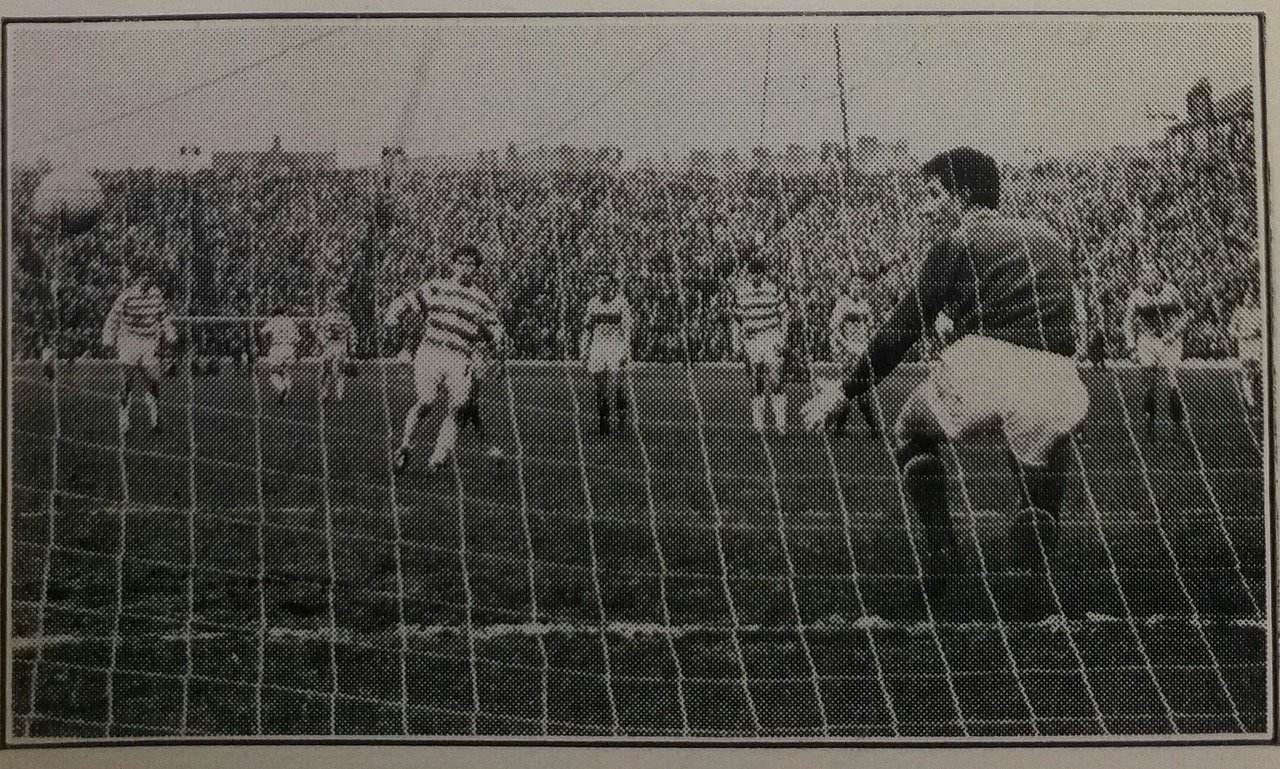
That would be Bobby Ancell’s last match as ‘Well manager, as he now replaced Bob Shankly at Dens Park, Shankly himself having done likewise for Jock Stein at Hibernian a few weeks earlier. St Mirren coach Bobby Howitt would be the new boss at Fir Park, his first game in charge being the Scottish Cup replay against Celtic at Hampden as the managerial merry-go-round continued.
There were also two significant games in the First Division title race that day. League leaders Hearts were in big trouble at Shawfield at half-time, 2-1 down and toiling, before staging a dramatic comeback in the second half to win 5-2. And Kilmarnock halted the progress of Eddie Turnbull’s Aberdeen, winning 2-1 at Rugby Park to keep the pressure on the leading duo, Hearts and Hibernian. With Dunfermline tucked in behind with games in hand, it was still any one from four for the Scottish title, the Fifers still with sights set on a League and Cup double.
There was a sense of deja-vu on the last day of the month as Dunfermline Athletic and Hibernian again clashed in Edinburgh whilst Celtic met Motherwell at Hampden. This time though the Pars were in League action at Easter Road in a match vital to the title aspirations of both clubs. The Fifers had been unbeaten in the four meetings of the clubs since Jock Stein had swapped East End Park for Easter Road, and a continuation of that record would see them keep the pressure on the League leaders, but it was not to be on the night.
Jim Herriot misjudged Neil Martin’s head flick to give Hibernian the lead early in the second half and the Pars then had the misery of seeing a last-minute Alex Ferguson equaliser ruled out for offside. The two points sent Hibernian to within one of leaders Hearts and two clear of third-placed Kilmarnock, all three having four games to play. Dunfermline still had five matches remaining but were now five points off the pace and looking for help from elsewhere. The Scottish Cup appeared their best bet for silverware now.
Back in the Easter Road dressing-room they would learn that their opponents in the April final would be Jock Stein’s new club Celtic, who swept Motherwell aside in their replay, winning 3-0 before 60,000 spectators. That would mean a re-run of the 1961 final, in which Jock had led Dunfermline to a shock victory over the Hoops, whilst Celtic’s last win in the competition had been back in 1954, when their winning captain was…Jock Stein
There is nothing quite like football for throwing up these quirks of fate.
As we entered April 1965, the supporters of Hearts, Hibernian, Kilmarnock, Dunfermline Athletic and Celtic all harboured dreams of glory as the two major domestic competitions neared their exciting finales.
Hail Hail
Matt Corr
